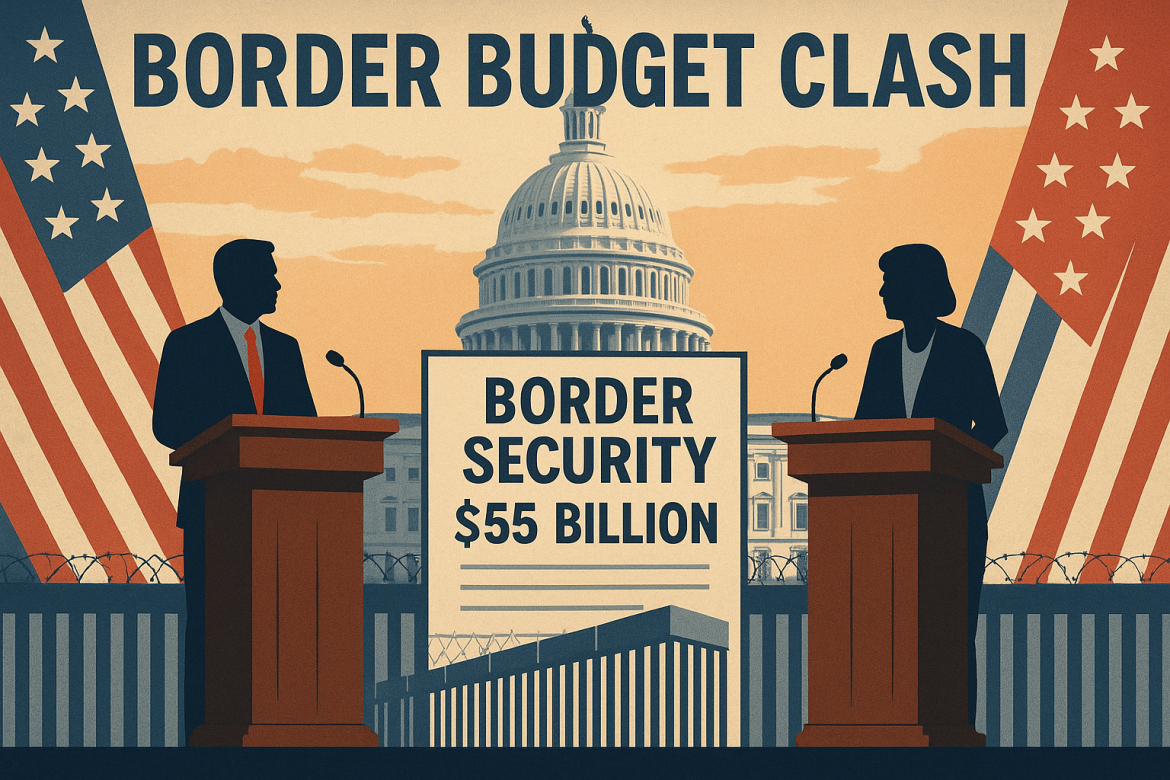A fierce debate is unfolding in Congress over Republican-backed efforts to allocate more than $55 billion in federal funds toward heightened border security, sparking intense pushback from Democrats who argue the proposed spending prioritizes political messaging over actual needs. The contentious budget proposal includes over $46 billion for new border barriers, $5 billion for expanding detention facilities, and $4 billion earmarked for the hiring of additional immigration enforcement agents.
During a heated Capitol Hill hearing, California Congressman Robert Garcia leads Democratic criticism, stating the Republican proposal sacrifices essential social services to fund measures that are both extreme and unnecessary. “We should not be pumping billions of dollars into new border walls when illegal crossings are at record lows,” Garcia says. He also warns that such an aggressive budget would gut public programs that serve low-income Americans, such as affordable housing, food assistance, and public education, all while fueling mass deportation operations that have already drawn public outcry.
Republicans defend the plan as a necessary response to what they describe as long-standing failures in U.S. immigration enforcement. They argue that enhanced physical barriers, more detention capacity, and increased personnel are vital tools to secure the border and reduce illegal immigration. GOP lawmakers cite rising drug trafficking and human smuggling along southern border corridors as justification for the budget surge.
However, recent Department of Homeland Security data undercuts some of the urgency behind the push. Border encounters have actually declined in the last two months, attributed in part to shifting migration patterns and diplomatic agreements with Central American countries. The Biden administration previously ramped up deportations under Title 8 immigration authority and negotiated with Mexico and Guatemala to manage migrant flows more effectively.
Congressman Garcia points to these figures as evidence that the Republican budget is not driven by necessity, but by ideological goals. “The American public doesn’t want to fund mass deportation efforts,” he says, referencing recent polling that shows a majority of voters support immigration reform but oppose expanding detention and deportation infrastructure. He adds that proposed funding would bolster controversial practices such as family separation and indefinite detention—issues that continue to haunt the country’s recent immigration history.
The current border security debate also intersects with broader 2025 federal budget negotiations. Republicans are seeking to offset the new border spending with steep cuts to programs like Medicaid expansion, climate initiatives, and community development grants. Democrats argue that these trade-offs would disproportionately harm working families while failing to produce real gains in national security.
This clash follows years of highly polarized immigration debates in Congress. Under the Trump administration, billions were spent on border wall construction and the expansion of Immigration and Customs Enforcement (ICE). Many of those projects stalled or were reversed under President Biden, who shifted the focus toward a combination of digital surveillance, international diplomacy, and humanitarian parole programs.
Nevertheless, the 2025 GOP-led budget proposal seeks to revive many of Trump-era policies with an even more expansive scope. Critics say it represents a return to punitive immigration strategies that failed to resolve long-term border challenges while alienating immigrant communities and costing taxpayers billions.
As Congress moves closer to its summer recess, it remains unclear whether the Republican proposal will advance through the Senate, where Democrats hold a narrow majority. Any finalized budget will likely require bipartisan compromise, but with both parties digging in over the border funding provisions, a legislative stalemate is possible.



